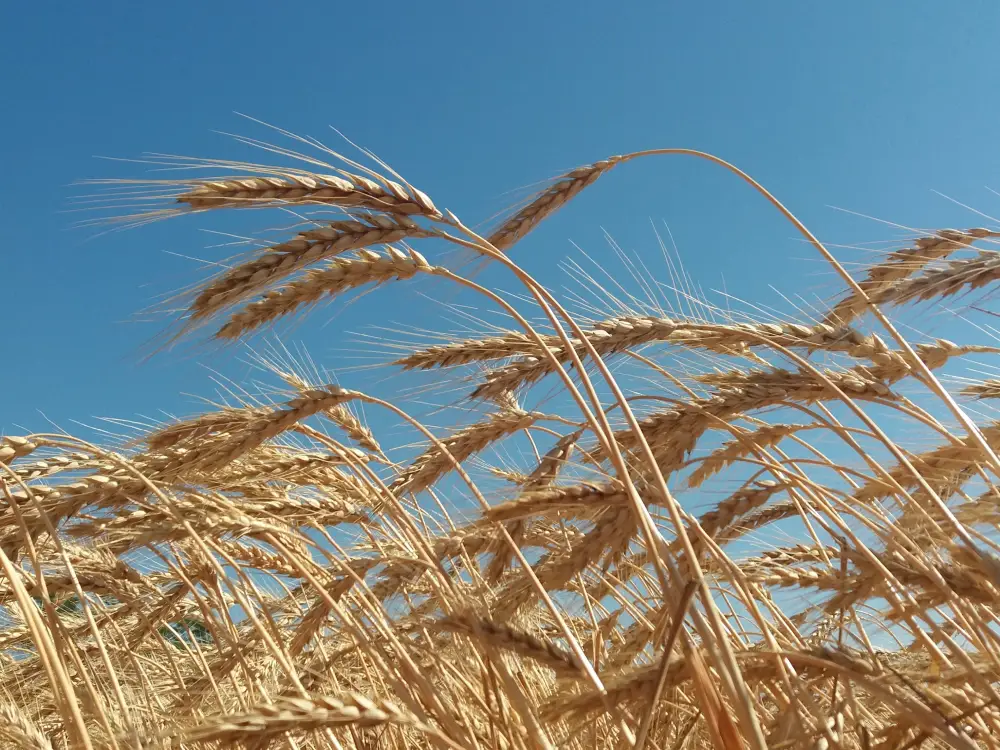Choosing a dog food is now a daunting task for pet owners, with new companies popping up left and right, and confusing advertising and marketing campaigns. Most recently, the push toward grain-free, gluten-free, and “clean” pet foods has dominated the market. So, are grains bad for dogs? Is gluten bad for dogs? Most grains offer good nutritional value and are not inherently bad, but some situations do warrant avoiding these ingredients. We answer questions to help you decide whether to feed your dog a grain- or gluten-free diet.
What is gluten?
Gluten is the term for the protein portion in many grains, including wheat, rye, and barley, but most commonly refers to wheat gluten. Gluten in dog food can increase protein content without adding expensive animal ingredients, and can help improve food texture and consistency. Like other proteins, gluten is composed of essential amino acids necessary for body functions, but isn’t considered “complete,” because not all the necessary essential amino acids are included. Complete nutrition requires a combination of plant and animal proteins.
What is gluten-free dog food?
Gluten-free dog food and gluten-free dog treats avoid the use of gluten-containing grains, and instead use gluten-free carbohydrate sources, such as corn, potatoes, or rice. Gluten-free diets are not necessarily healthier because gluten is absent, but marketing claims that gluten causes allergies in dogs, or is otherwise bad for dogs or people, have misled many people. Pet owners may also avoid gluten-containing pet food because they or a family member have a serious gluten allergy called celiac disease and do not want gluten in their home.
Is grain-free dog food the same as gluten-free dog food?
All grain-free dog foods are gluten-free, because only grains contain gluten. These foods typically use potatoes or legumes as a primary carbohydrate source and avoid grains entirely. However, gluten-free dog food may contain some grains, including rice, corn, or oats, so not all gluten-free dog food is grain-free. Many pet owners choose grain-free food because of false marketing claims that grains are used as non-nutritive, cheap fillers, or result in itchy skin.
Are gluten-free or grain-free dog foods safe?
For most dogs, grain- and gluten-free diets are as equally healthy as grain-containing diets with similar nutrient profiles. Most dogs can safely eat any diet that is complete and balanced, meets AAFCO standards for their life stage, and maintains good weight, energy, and digestion.
One important safety note is the possible link between grain-free diets and a heart condition called dilated cardiomyopathy. While extensive veterinary and FAA research has not yet determined the reason, most diets linked to the disease contain potatoes or legumes (i.e., peas, lentils) as the main carbohydrate source. Because so little is known about this link, concerned pet owners should consider a diet for their pet that avoids these ingredients or talk to their veterinarian about other diet options.
Can dogs have wheat?
Wheat is a grain and a good source of easily digestible carbohydrates, protein, minerals, and fiber. Gluten is wheat’s main protein component, and combined with other dog food ingredients, wheat can help round out a balanced, nutritious diet. Wheat, and its gluten, are perfectly safe and healthy for most dogs.
Do gluten or wheat contribute to food allergies?
Discussing food allergies is important when talking about wheat, grains, and gluten. Most claims against these ingredients are based on false beliefs that they cause allergies, itchy skin, or other adverse reactions in dogs, which is partly true, because these reactions do occur, but rarely. Allergies in dogs manifest as itchy, red, inflamed skin, and sometimes include vomiting or diarrhea. Environmental allergens, such as pollen or mold, mostly cause skin disease, but a few can be pinpointed to a food allergy. A study of 278 food allergy cases in dogs showed that most were caused by beef, dairy, chicken, egg, lamb, soy, pork, and fish, with only 42 cases traced to wheat or wheat gluten.
Which dogs should avoid wheat or gluten?
Dogs who may have a food allergy or chronic gastrointestinal (GI) disease should undergo a diet trial with subsequent ingredient challenges to determine the culprit. This can be time-consuming, and some dogs improve so much on the trial diet that owners don’t want to risk a relapse by reintroducing ingredients to determine the problem. Dogs with a proven wheat or gluten allergy, or those with an unknown food allergy, should avoid these ingredients.
A few other conditions have been linked to gluten in tiny, specific dog populations. Some Irish setters may develop gluten-sensitive chronic diarrhea, and border terriers can develop a seizure-like syndrome that resolves with gluten removal from their diet. However, these extremely rare conditions are isolated to certain genetic lines, so gluten consumption risks are limited in the general dog population.
Despite the evidence that wheat, gluten, and grains are safe and healthy dog food ingredients, some people may feel more comfortable avoiding such diets. Whether you have a strong personal preference, or your dog has special needs, Ollie offers grain-based and grain-free diets to meet your dog’s specific dietary requirements.
